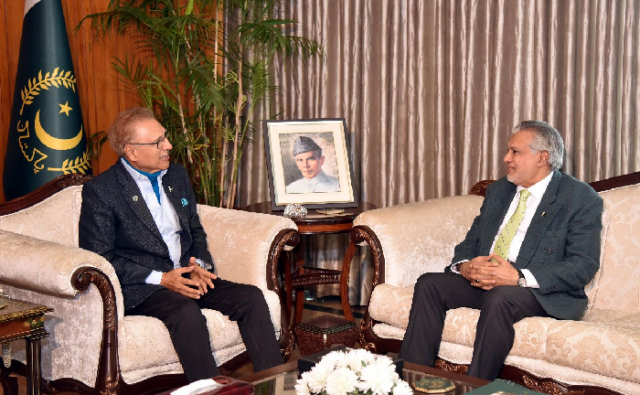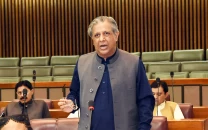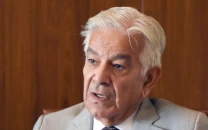IMF agreement: Alvi refuses to approve 'mini-budget ordinance'
President advises Finance Minister Dar to take parliament into confidence on imposing new taxes

President Dr Arif Alvi on Tuesday turned down the federal government’s request to approve an ordinance, seeking to imposing new taxes to raise additional revenue in line with the conditions of International Monetary Fund (IMF) to revive the stalled $6.5 billion bailout package.
According to an official statement issued by the President House, Finance Minister Ishaq Dar called on the president and apprised him of the progress in talks with the IMF and all modalities that had been agreed upon.
ریاست ِپاکستان حکومت کی جانب سے آئی ایم ایف کے ساتھ کیے گئے وعدوں پر قائم رہے گی، صدر مملکت
— The President of Pakistan (@PresOfPakistan) February 14, 2023
حکومت ایک آرڈیننس جاری کرکے ٹیکسوں کے ذریعے اضافی ریونیو اکٹھا کرنا چاہتی ہے، وزیر خزانہ
اس اہم موضوع پر پارلیمنٹ کو اعتماد میں لینا زیادہ مناسب ہوگا ، صدر مملکت pic.twitter.com/kTcpx9VctA
Alvi appreciated the efforts of the government for negotiating an agreement with the International Monetary Fund and assured that the state of Pakistan would stand by the government’s commitments in this regard, it added.
The minister informed that the government wanted to raise additional revenue through taxes by promulgating an ordinance.
However, the president advised that it would be more appropriate to take the parliament into confidence on this important subject, and that a session be called immediately so that the bill was enacted without delay.
The government has so far met two prior actions of increasing the electricity and gas prices, which were set by the IMF along with other conditions, for reaching a staff-level agreement.
The details showed that the gas consumers would pay extra Rs310 billion in just six months.
Also read: Rs170b mini-budget on the cards
The government had already increased the electricity prices by Rs3.30 to Rs15.52 per unit to recover Rs237 billion more till June. Another burden of Rs189 billion would be passed on in the shape of increase in taxes by June 2023.
Cumulatively, these three measures would force the people to cough up an extra Rs736 billion in just six months – a cost that had been increased due to the government’s failure to timely revive the IMF programme.
What has Pakistan agreed with the IMF?
Below are the key points Pakistani authorities say they have already reached agreement on with the IMF: The government will implement fiscal measures, including taxation, to raise Rs170 billion worth of revenue.
The government's existing commitments to increase petroleum levies will be completed. Diesel levies will be raised twice by 5 rupees per litre each time on March 1 and April 1.
Energy reforms suggested by the IMF will be discussed and approved by Pakistan's cabinet. This would include Pakistan completely slashing its circular debt – a form of public debt that builds up in the power sector due to subsidies and unpaid bills.
Eliminating circular debt entirely was not an immediate requirement. In the meantime, Pakistan would not add any circular debt related to gas.



















COMMENTS
Comments are moderated and generally will be posted if they are on-topic and not abusive.
For more information, please see our Comments FAQ